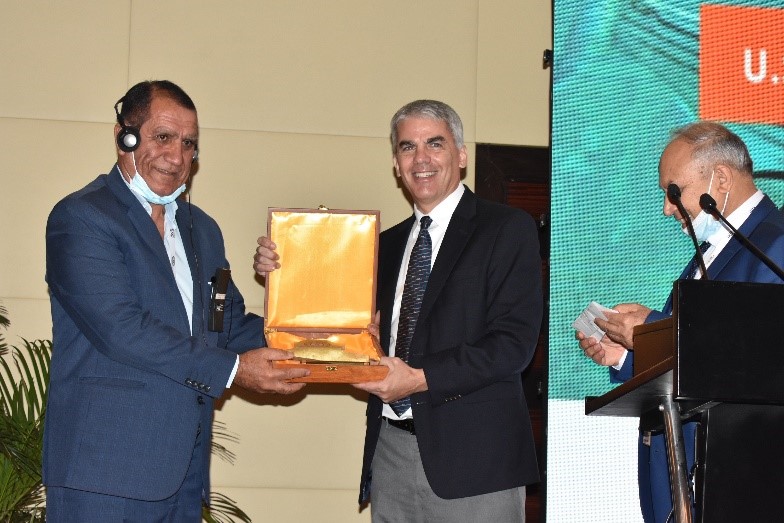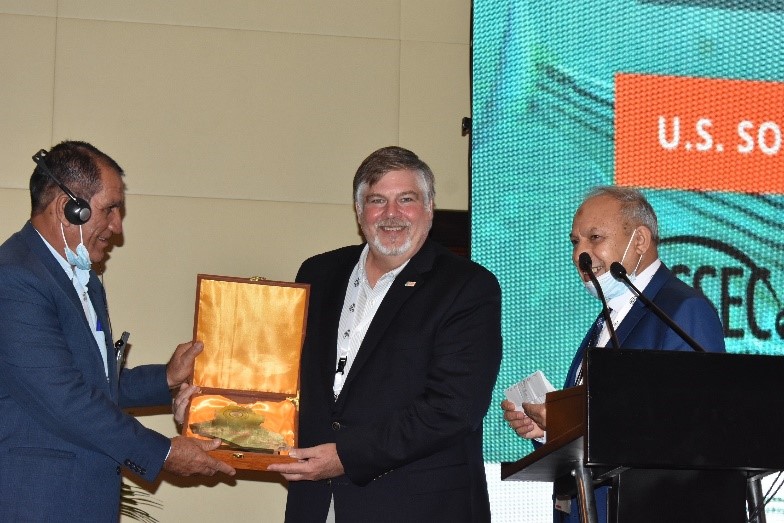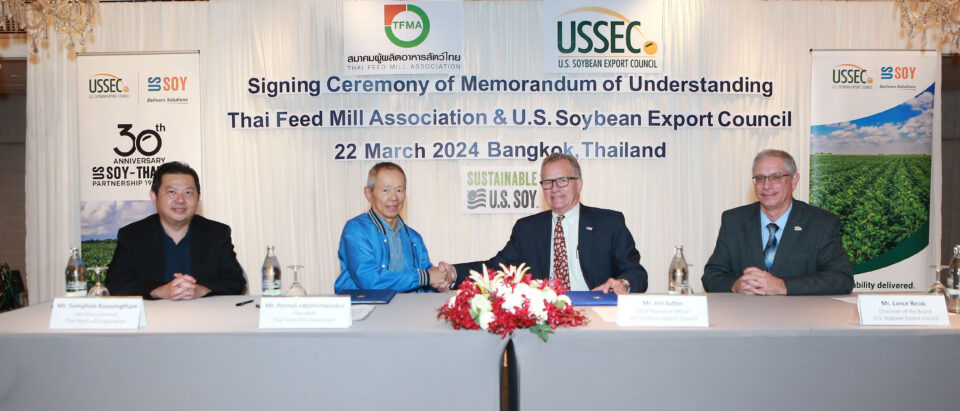
U.S. Soy generates potential to strengthen international relationships while improving food security. Long-term USSEC investments, made with support from the soy checkoff, position U.S. Soy to realize that potential, as demonstrated by efforts to rebuild a market for U.S. Soy in Iraq.
“Prior to 1990, Iraq imported between 103,000 and 320,000 metric tons of U.S. soybean meal annually1,” says Brent Babb, USSEC regional director for Europe and the Middle East and North Africa, or MENA. “Following the recent Iraqi purchase of 44,000 metric tons of U.S. soybeans2, USSEC continues actively engaging this market to rebuild demand for U.S. Soy products.”
According to Babb, ongoing support of the Iraqi aquaculture industry serves as the core of these efforts. During USSEC’s regional aquaculture production conference in 2019, Babb and other USSEC leaders met with major aquaculture producers, aquafeed millers and the Aquaculture Producers Association of Iraq to learn how USSEC could foster development of the industry.
Building on that discussion, USSEC organized an aquafeed seminar for freshwater fish species for the Iraqi aquaculture industry, held in December 2021. Among other topics, speakers differentiated the advantages of U.S. Soy as a key ingredient in aquafeeds for rapid and sustainable fish growth.
In recognition and appreciation of efforts to develop their industry, the Iraqi Fish Producers Association recognized USSEC leaders with plaques during USSEC’s Regional Aquaculture Production Conference for MENA, held in Dubai in December 2022.
“While recent efforts have focused on aquaculture, we continue to work closely with all related sectors in Iraq,” Babb says. “Our activities include conferences for soybean processing, buyers and sellers and dairy production; feed milling programs; poultry disease and production training and more.”
Recent efforts mirror USSEC’s engagement in Iraq, which began in the early 1990s with the Civilian-Military Initiative Works Program and other efforts that sought to increase grain imports into the country. Iraq had decreased grain imports dramatically, causing chronic animal feed shortages. Those shortages hampered Iraqi animal production, contributing to higher meat and dairy prices.
“That program focused on removing infrastructural and procedural barriers to Iraqi imports,” Babb explains. “Later programs continue these efforts, supporting Iraqi poultry, dairy and livestock producers. Our current focus on the aquaculture industry reinforces our commitment to helping Iraq meet its feed — and by extension food security — needs.”
Babb anticipates that USSEC support of these industries will foster increasing purchases of U.S. Soy in Iraq.


This story was partially funded by U.S. Soy farmers, their checkoff and the soy value chain.
1 Iraq Agriculture and Food Supply: Background and Issues, CRS Report, June 7, 2004
2 USDA FAS Soybean Export Report, March 30, 2023
